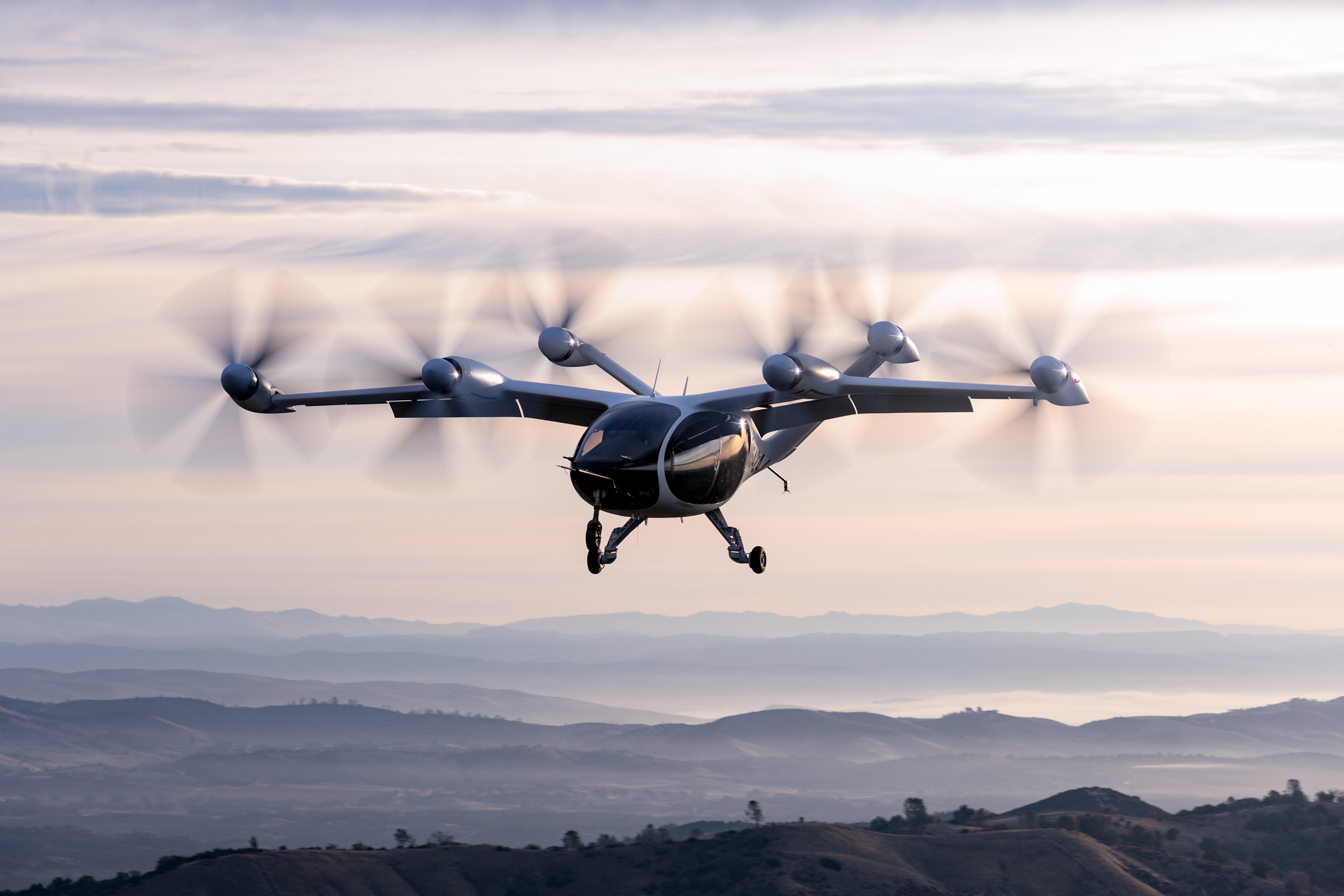Joby Aviation — the publicly-traded electric air vehicle company with a current market cap of $3.1 billion — has received the necessary certification from the Federal Aviation Administration to begin on-demand commercial air taxi operations, the company said on Thursday.
While it’s a significant milestone that puts Joby closer to its stated goal of launching its electric aerial ridesharing service commercially in 2024, the startup still has a ways to go until it can ferry passengers in its electric vertical takeoff and landing (eVTOL) vehicles.
Joby has only built two prototype vehicles and wouldn’t share with TechCrunch how many it intends to build and deploy for its initial launch. Additionally, the Part 135 Air Carrier Certificate received this week is only one of three FAA certifications the company will need to actually operate its eVTOLs as air taxis across the United States — the other two are a Type Certificate and a Production Certificate.
That said, Joby recently acquired Avionyx, an aerospace software engineering firm with a long track record of helping aviation companies secure FAA certifications. And in March, Joby said it would work with CAE, an aviation trainer, to develop and qualify flight simulation training devices so commercially rated pilots can train to fly eVTOLs.
“The procedures we’ve prepared lay a foundation for our future eVTOL operations,” said Bonny Simi, head of air operations and people at Joby and one of the company’s FAA-approved pilots, said in a statement. “Over the coming months, we will use our Part 135 certificate to exercise the operations and customer technology platforms that will underpin our multi-modal ride-sharing service, while also refining our procedures to ensure safe and seamless journeys for our customers.”

Joby Aviation eVTOL aircraft prototype. Image Credit: Joby Aviation
In other words, Joby will start testing out the back end technology needed to operate what will be an Uber-like ride-hail service in the sky, a company spokesperson told TechCrunch. For example, Joby has been building tech that shows pilots where their next ride will come from, similar to how Uber drivers can see who they’ll be picking up next. Once the consumer app is developed, Joby will start testing it out with employees, a spokesperson told TechCrunch, noting that the company will likely run a customer pilot after that.
Joby would not disclose what test routes it intends to fly on, but the company is currently flying an employee shuttle between San Jose and Marina, California.
While Joby has set up partnerships with South Korean telecommunications company SK Telecom and Japanese airline ANA to launch a commercial air taxi service in both of those countries, the company has its initial launch set for the U.S. Where in the U.S., Joby wouldn’t say, but most of its public testing is happening in California.
Initially, Joby will rely on existing infrastructure and underutilized assets like parking garages and helipads for docking air taxis while it works to build out a network of vertiports alongside partners.
Last June, the startup announced a partnership with Reef, one of the country’s largest parking garage operators, and Neighborhood Property Group, a real estate acquisition company, to build a network of vertiports, starting in Los Angeles, San Francisco, Miami and New York.
Joby is also working with Macquarie Capital, an infrastructure asset manager; Signature Aviation, a provider of on-airport private landing sites; and Related Companies, New York City’s largest landlord, to develop vertiports in advance of a commercial launch.
Joby intends to run its own app to provide riders with access to its air taxi service, but the plan is for it also to be integrated into Uber’s app, and vice versa. The two companies came to this agreement in 2020, when Joby purchased Uber Elevate, the ride-hailing company’s moonshot air taxi enterprise, and Uber invested $75 million into the startup.
